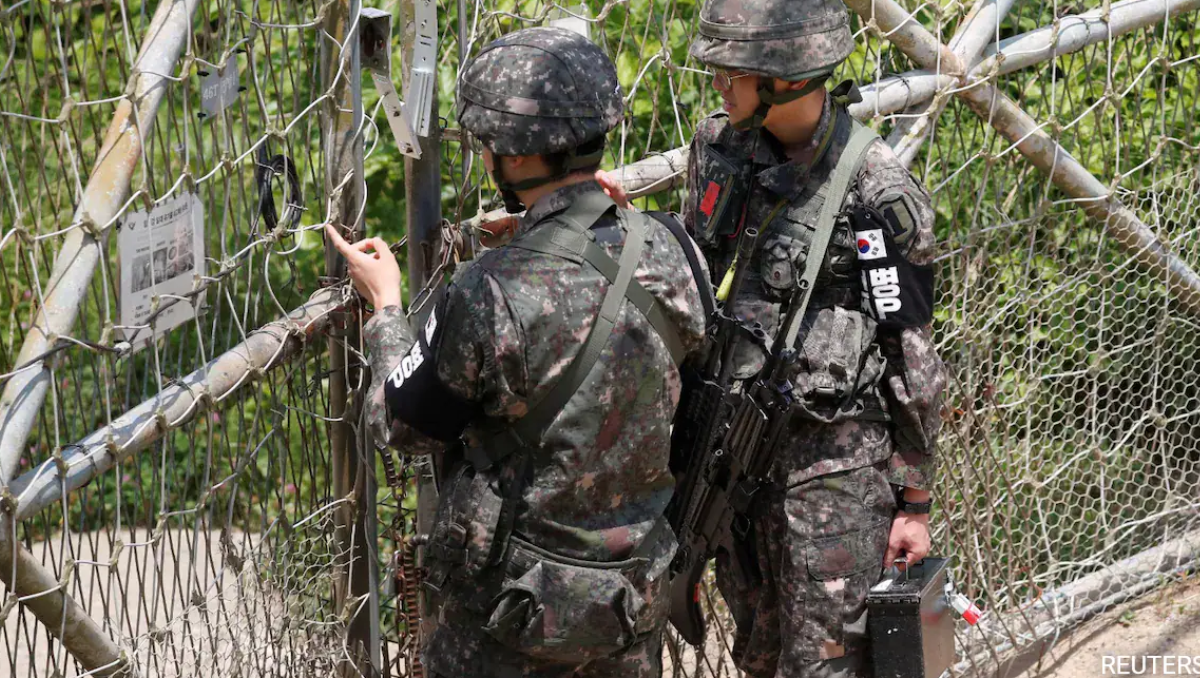The 1950–1953 War ended in an armistice rather than a peace treaty, so North and South Korea are still formally at war, but tensions between them are at an all-time low.
The military in Seoul announced on Tuesday that it had fired warning shots following a brief crossing of North Korean soldiers into Seoul this week.
Tensions were high due to Pyongyang’s garbage-carrying balloons and Seoul’s propaganda efforts using loudspeakers.
The JCS claimed in a statement that some North Korean soldiers operating within the DMZ on the center front had momentarily crossed the line of control in the heavily guarded boundary between the two Koreas.
It stated that they withdrew northward after our troops fired warning shots and broadcast warnings and that the incident took place on June 9.
The JCS stated that no unexpected movements were seen, with the exception of the North Korean forces immediately retreating after our warning shots, and that the military was closely observing personnel near the border.
The 1950–1953 War ended in an armistice rather than a peace treaty; therefore, the two Koreas are still technically at war, but tensions between them are at an all-time low.
According to North Korea, hundreds of balloons full of garbage—including cigarette butts and soiled paper had been delivered southward in recent weeks by activists in retribution for balloons that carried propaganda critical of Pyongyang that were sent north.
The North was incensed and warned Seoul that it was triggering “a new crisis” when South Korea completely halted a 2018 military agreement aimed at easing tensions and resumed loudspeaker transmissions along the border in response to the garbage balloons.
The military of South Korea announced on Monday that it had seen indications that the North was setting up its own speakers.
Since the 1960s, North Korea has aired messages of praise for the Kim family over loudspeakers along the border. However, in 2018, when relations improved, these broadcasts ceased.
Experts are furious over the decision to renounce the 2018 accord and carry on with loudspeaker broadcasts, stating that there might be disastrous repercussions.
Actually, previous propaganda tit-for-tat efforts have harmed inter-Korean ties.
2020 saw Pyongyang blow up an inter-Korean communication building on its side of the border and unilaterally cut off all formal army and political communication connections with the South, blaming anti-North leaflets for the action.
Additionally, the North has repeatedly threatened to attack the loudspeaker units with artillery strikes.
The top leaders of the two Koreas decided to cease all offensive acts in 2018, during a time of better relations between them. This included ending the leaflet.
A rule that made it illegal to send leaflets to the North was approved by the South Korean government in 2020, but campaigners did not stop, and the law was overturned by the Constitutional Court last year because it unnecessarily restricted free speech.
A major accomplishment of the previous president, Moon Jae-in, who met with Kim Jong Un of North Korea on several occasions in an effort to strengthen relations, was the 2018 agreement.
By breaking the agreement, South Korea can potentially start conducting live-fire border drills again.
